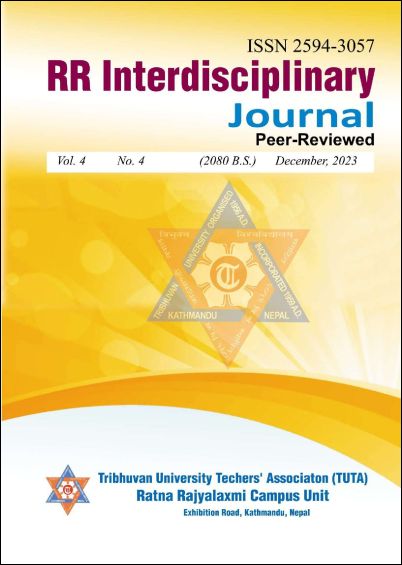Construction and Reconstruction of Subjectivity Towards Nation, Nationality, and Citizenship: Analysis of the Changes during the Last Five Generations
DOI:
https://doi.org/10.3126/rrij.v4i4.62748Keywords:
Subjectivity, Nation, Nationality, Citizenship, Fields, CapitalAbstract
This paper has explored whether and how globalization, politics/power, and fields construct and reconstruct the subjectivity of people toward nation, nationality, and citizenship over the generations. I found no scholars have talked about why and how people's subjectivity was reconstructed over the generations. By analyzing data from five generations of the Karki family of Khothang and Udayapur, as a unit of analysis, to which I belong, I have found that before, 1900 AD, caste, race, religion, occupation, and cultural practices were major dominant factors for constructing and reconstructing the subjectivity of people towards nation, nationality, and citizenship but after 1900 AD, State and national politics become the most dominant factor. However, at present, the role of the nation has become weaker and shifting towards the global market because of the increasing connectivity to global society. The concepts of global citizenship, global market, and human rights have been playing a vital role in constructing and re-constructing new forms of subjectivity towards nation, nationality, and citizenship. Here, I argue that whenever state/political power becomes weak, the subjectivity of people would be formed by their fields.




